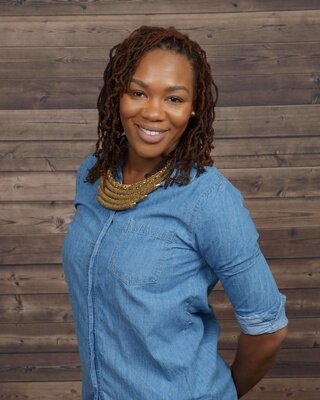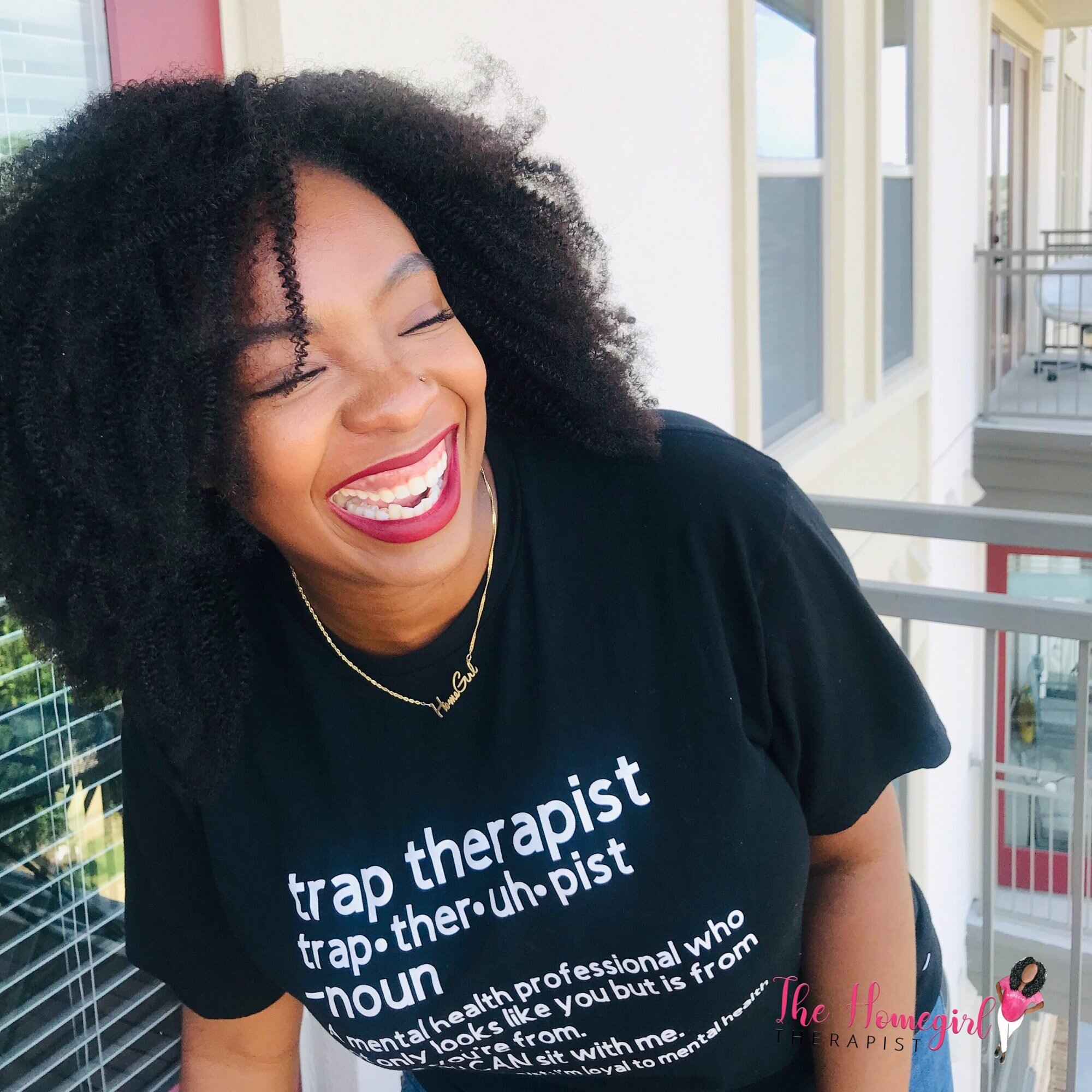Defining Depression + How To Deal With IT
You’re not crazy and your depression is manageable! We are learning about the impairment that depression has on everyday life and how it can become a source of distress. As exhausted as you may be, there are some steps you can take to identify and manage your depression symptoms. We talked to the women behind Trinity Rising Counseling Center in Dallas, Texas about identifying Depression and options for management.
We talked to the women behind Trinity Rising Counseling Center in Dallas, Texas about identifying Depression and options for management. Meet Tammarra Letbetter and Shanta Jackson MA, LPC
Tammarra Letbetter MEd, LPC, NCC (co-owner of Trinity Rising Counseling Center:
What is Depression?
A mental health disorder characterized by persistently depressed mood or loss of interest in activities, causing significant impairment in daily life.
Depression can lead to suicidal ideation and in some cases suicide attempts.
Possible causes include a combination of biological, psychological, and social sources of distress.
Depression can be developed mainly around the changing of seasons for some people.
Is there a Depression epidemic?
Depression has been described throughout the beginning of times. In the past it was not viewed as a serious mental health disorder. Research regarding depression has always signified that there is a significant issue but just recently studies have shown an increase in suicide attempts among teenage African American kids.
Yes, there is and has always been an epidemic of depression and now it is appearing more among diverse populations to include people of color.
In my professional opinion, I do not believe depression is just now starting to affect African Americans but as of now more AA are seeking treatment. More data is being collected among diverse populations, which is revealing the true effects of Depression among everyone.
The National Center for Health Statistics and the Centers for Disease Control and Prevention have released new data to support the rise of suicide in America. Deaths from suicide in America ranked number ten in 2017 and now ranks number two. This new information indicates a depression epidemic.
Is there actually a way to cope with Depression?
Depression can be treated any stage it is identified. Some of the treatments for depression includes; psychotherapy (counseling) and medication management.
The most popular treatment is a combination of talk therapy and medication.
How can someone identify if they have Depression?
Identifying depression can be hard for many people who are still developing self -awareness. Listed below are some symptoms to be aware of that may indicate depression. People may experience:
Mood: anxiety, apathy, general discontent, guilt, hopelessness, loss of interest or pleasure in activities, mood swings, or sadness
Behavioral: agitation, excessive crying, irritability, restlessness, or social isolation
Sleep: early awakening, excess sleepiness, insomnia, or restless sleep
Whole body: excessive hunger, fatigue, or loss of appetite
Cognitive: lack of concentration, slowness in activity, or thoughts of suicide
Weight: weight gain or weight loss
Also common: poor appetite or repeatedly going over thoughts
Source: Mayo Clinic
Shanta Jackson MA, LPC (The Homegirl Therapist & part owner of Trinity Rising Counseling Center
What should be the steps someone takes if they feel they have depression?
It’s important to find support if you feel like you may have depression. It’s a difficult thing to maintain on your own, and sometimes the depression can provide an unhealthy, and distorted perspective on life and yourself. Typically when depressed you have the tendency to withdraw and isolate, so it’s important to reach out. Reach out to someone you trust and that can provide support.
Seeking professional help with a therapist would also be the next step, and can truly assist you in dealing with the depression. Finding a therapist can feel daunting because you may not know where to start. So there are a few ways that you can find a therapist.
1) If you have insurance, contact your insurance provider and they can provide you with a list of therapist who are in your network.
2) You can also find a therapist through a number of sites, I suggest www.psychologytoday.com this site allows you to filter your insurance provider, presenting issues, location and a number of other specific filters that will provide you with a list of therapist that work for you. Another good site, for those who may not have insurance and need a discounted rate from a qualified provider, you should go to www.openpathcollective.org where you can find a therapist who has affordable rates between $30-$80 a session.
The first steps can be difficult but I encourage you, to push through the initial fear or discomfort.
Does having Depression mean you are crazy?
Absolutely not. Having a depression doesn’t make you crazy or weak. There are a number of variables that are rooted in depression from biological, psychological, or social factors. Depression is more common than a lot of us think, I am a therapist, and have dealt with a form of depression myself. I don’t consider myself crazy at all, and you shouldn’t either.
Where does Depression come from and are there any test you can take to see if you have it?
We don’t know exactly where depression comes from, it can be such a complex disorder. However, there are a number of things that can be linked to its development. From a combination of recent factors that has shifted your mood, to more longer term personal factors that stem from childhood traumas, adult traumas, serious medical illnesses, environmental factors or drug and alcohol use. I’m sure there are a number of test that can be taken online to give you insight on depression, but I suggest to seek a professional who will conduct an assessment to give you an official diagnosis. There are a number of things to take into account before diagnosing someone with Depression.
How does depression connect to Anxiety?
Depression and anxiety are often co-occurring, meaning they usually happen at the same time or in a cycle. So you can feel depressed and symptoms from depression can trigger anxiety, or vice versa. For example, you may get anxious and it triggers some worry or some problem that you have and constantly think about. You begin to feel bad about it , you feel like you’ve failed, or you start to worry about how others perceive you or a specific situation and you move into depression. So because of that initial anxious trigger it pushes you to isolate and withdraw. And from there you find yourself in that cycle of anxiety and depression.
While this is a complex relationship, you can absolutely have one without the other. But in most cases they are partners and they happen together. It’s important to seek a professional for an assessment to better understand your form of depression or anxiety. Depression can look different for everyone.



